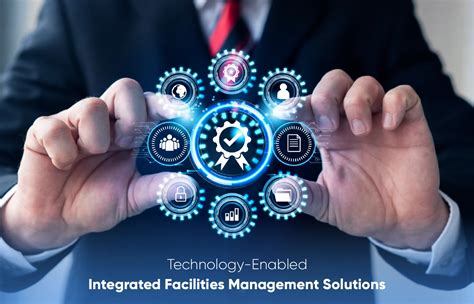The world is witnessing a significant transformation in the way businesses operate, and technology is at the forefront of this revolution. Tech-enabled services are changing the landscape of various industries, making them more efficient, productive, and customer-centric. From healthcare and finance to education and logistics, technology is breaking down barriers and creating new opportunities for growth and innovation.
In this article, we will explore the impact of tech-enabled services on different industries and how they are revolutionizing the way businesses operate. We will also discuss the benefits and challenges of adopting these services and provide insights into the future of tech-enabled industries.
What are Tech-Enabled Services?
Tech-enabled services refer to the use of technology to deliver services that were previously manual or labor-intensive. These services leverage advancements in areas like artificial intelligence, blockchain, cloud computing, and the Internet of Things (IoT) to create more efficient, cost-effective, and customer-friendly solutions.
Tech-enabled services can be applied to various industries, including:
- Healthcare: Telemedicine, electronic health records, and personalized medicine
- Finance: Mobile payments, digital wallets, and robo-advisory services
- Education: Online learning platforms, virtual classrooms, and AI-powered adaptive learning
- Logistics: Automated supply chain management, real-time tracking, and drone delivery

Benefits of Tech-Enabled Services
The adoption of tech-enabled services offers numerous benefits to businesses and customers alike. Some of the most significant advantages include:
- Increased efficiency: Automation and AI-powered processes reduce manual labor and improve productivity.
- Enhanced customer experience: Personalized services, real-time updates, and omnichannel engagement create a more satisfying customer experience.
- Cost savings: Reduced labor costs, lower operational expenses, and improved resource allocation lead to significant cost savings.
- Improved accuracy: AI-powered analytics and machine learning algorithms minimize errors and improve decision-making.
- Scalability: Tech-enabled services can be easily scaled up or down to meet changing business needs.
Industry-Specific Applications
Let's take a closer look at how tech-enabled services are transforming different industries:
Healthcare
The healthcare industry is undergoing a significant transformation, driven by the adoption of tech-enabled services. Telemedicine, electronic health records, and personalized medicine are just a few examples of how technology is improving patient care and outcomes.
- Telemedicine: Virtual consultations and remote monitoring enable patients to receive medical care from the comfort of their own homes.
- Electronic health records: Digital records improve data accuracy, reduce paperwork, and enhance patient engagement.
- Personalized medicine: Genomic analysis and AI-powered diagnostics enable tailored treatment plans and improved patient outcomes.

Finance
The finance industry is witnessing a significant shift towards digital services, driven by the adoption of tech-enabled solutions. Mobile payments, digital wallets, and robo-advisory services are just a few examples of how technology is transforming the financial landscape.
- Mobile payments: Contactless payments, mobile wallets, and peer-to-peer transactions simplify financial transactions.
- Digital wallets: Secure, cloud-based wallets enable users to store and manage their financial information.
- Robo-advisory services: AI-powered investment platforms offer personalized investment advice and portfolio management.

Education
The education sector is undergoing a significant transformation, driven by the adoption of tech-enabled services. Online learning platforms, virtual classrooms, and AI-powered adaptive learning are just a few examples of how technology is improving educational outcomes.
- Online learning platforms: Cloud-based platforms enable students to access educational resources, participate in online discussions, and complete assignments remotely.
- Virtual classrooms: Immersive, interactive environments enhance student engagement and improve learning outcomes.
- AI-powered adaptive learning: Personalized learning pathways, real-time feedback, and AI-powered assessments improve student performance.

Challenges and Limitations
While tech-enabled services offer numerous benefits, there are also challenges and limitations to consider:
- Cybersecurity: Increased dependence on technology creates new cybersecurity risks and vulnerabilities.
- Data privacy: The collection and storage of sensitive data raise concerns about data privacy and protection.
- Digital divide: The adoption of tech-enabled services can exacerbate existing digital divides, particularly in areas with limited access to technology.
- Regulatory frameworks: The lack of clear regulatory frameworks can create uncertainty and hinder the adoption of tech-enabled services.

Future of Tech-Enabled Services
As technology continues to evolve, we can expect to see even more innovative applications of tech-enabled services across various industries. Some potential future developments include:
- Increased adoption of AI and machine learning: AI-powered services will become even more pervasive, enabling businesses to make more informed decisions and improve customer experiences.
- Rise of edge computing: Edge computing will enable faster, more efficient processing of data, reducing latency and improving real-time decision-making.
- Growing importance of cybersecurity: As technology becomes more ubiquitous, cybersecurity will become an even more critical concern for businesses and individuals alike.

Conclusion
Tech-enabled services are revolutionizing industries across the globe, offering numerous benefits, including increased efficiency, improved customer experiences, and cost savings. While there are challenges and limitations to consider, the future of tech-enabled services looks bright, with potential developments in AI, edge computing, and cybersecurity.
As businesses continue to adopt and adapt to tech-enabled services, it's essential to prioritize customer needs, invest in employee training, and address cybersecurity concerns. By doing so, we can unlock the full potential of tech-enabled services and create a more efficient, productive, and customer-centric world.






What are tech-enabled services?
+Tech-enabled services refer to the use of technology to deliver services that were previously manual or labor-intensive.
What are the benefits of tech-enabled services?
+The benefits of tech-enabled services include increased efficiency, improved customer experiences, cost savings, and improved accuracy.
What are the challenges and limitations of tech-enabled services?
+The challenges and limitations of tech-enabled services include cybersecurity risks, data privacy concerns, digital divides, and regulatory uncertainty.
